“Fire is the spirit of rebellion. We use fire to mark transition, remove infrastructure, and to warn each other about danger. Fire meets all of the conditions for life—it reproduces, it moves, and it eats. Because fire mimics the sun, it gives us vision.
Come if you light fires (candles or otherwise) for your people. Come if you smell the smoke. Come if you cook or if you use fire to gather people. Come if you want to feel the heat inside of your body in good company. Fire is a movement that grows but it also needs a lot of nurture.”
- KL Mays (We Live in a Place) & Ace (Post Colonial Astrology)
This past week I attended a workshop by KL Mays & Ace next to the Brooklyn Bridge. In a small patch by the waterfront we laid our blankets on the wooden pier, sat cross legged, shared warm tea and fried cornbread as we gathered to hear stories they shared about the land and its history of fires.
New York has seen many uprisings since the first settlement was established in 1624, but KL Mays situated us in a specific moment of its past, the 1712 rebellion. Over 300 years ago, the city’s first slave market was set up on Wall Street to sell Native Americans & Africans who had been forcefully abducted. Many of these black slaves would have to collect waste buckets and dump them out into the water we sat by, providing one of the few opportunities they would have to speak to each other without constant surveillance.
On the night of April 6th 1712, they set aflame their master’s outhouse and revolted. As you can imagine it ended in violence and bloodshed. While most of the rebels were captured and condemned, KL speculates that a few escaped even though we have no trace of their histories. The aftermath of the event resulted in stricter laws that prevented slaves from gathering in groups and allowed for harsher punishments.
It wasn’t until 1799 that the governor signed an act to gradually outlaw slavery but full emancipation wasn’t achieved until 1827 (and even then many still profited from Caribbean imports that were fueled by slave labor like sugar).
It makes sense to associate fire with these destructive paths but fire has also been used to burn away our ties to brutal pasts. Ace gave the example of their grandfather from Zhengzhou, China. During his childhood in the 1930s he witnessed family members be released from prison. In an attempt to ward off the bad luck after incarceration and the residue from those harrowing experiences, they would leap across fire. This practice is still seen in other iterations across China.
What happens when we move on too quickly, when we don’t want to deal with the past, when we don’t even take the time to confront the remains that linger?
New York has tried to bury many things, amongst them an unsanctioned graveyard for deer. Staten Island has a problem with deer overpopulation. At some point in history, deer had been hunted out of the borough but they’ve been repopulating since the 1980s. The state has tried many methods to cull this such as sterilization, planting trees they can't eat, lethal injections, and incinerating piles of carcasses from car collisions. It's not unheard of to find bones scattered within Staten Island parks like Mount Loretto Unique Area.
Recently in another borough there was a different type of incineration. Amongst atypical drought warnings Prospect Park in Brooklyn suffered a 2 acre brush fire. A once beloved communal area left both its grounds and residents scorched. One of the attendees was a park worker and shared how park rangers are untrained to handle wildfires, ill equipped with only a bottle of water at times, and have yet to receive hazard pay.
Other attendees spoke of moving here from the west coast and were shocked to see this danger follow them to the east. KL mentioned how one of their first memories was seeing the hills of Oakland California ablaze and the blackened skies of the 1991 firestorm.
My mind went back to Guatemala, a country with 37 volcanoes within the ring of fire. I remembered Pacaya’s explosion. It’s one of the easier volcanoes to hike and when I went many years ago they let us roast marshmallows over the lava. In 2010 & 2014 the active volcano erupted. The local indigenous community evacuated, lives were lost, and a layer of ash cloaked the capital city 50km away. It’s not all devastation and destruction though, volcanic soil is incredibly rich and makes way for fertile land.
Situating ourselves back in Lenapehoking (Brooklyn, New York), KL spoke of a dutch settler who had written a book on the indigenous tribes that inhabited the area. Although he still used colonial language to refer to them, there was also a reverence for the ways they tended to the land to the extent that the dutch adopted some of the practices themselves, including burning away bushfire during the fall when there was an abundance of wood. I can’t remember the author’s name but it may have been this book on Internet Archive.
Now prescribed burns are unheard of on the east coast, the wildfires exasperated by climate change. The very pier we gathered around was going to disappear in an effort to combat environmental crisis. The public pier with modest access to the Hudson River is going to be torn down, a wall in its place. The state is constructing a flood wall to protect the city from coastal storm surges in the 2050s. Luxury city developers are already frothing at the mouth.
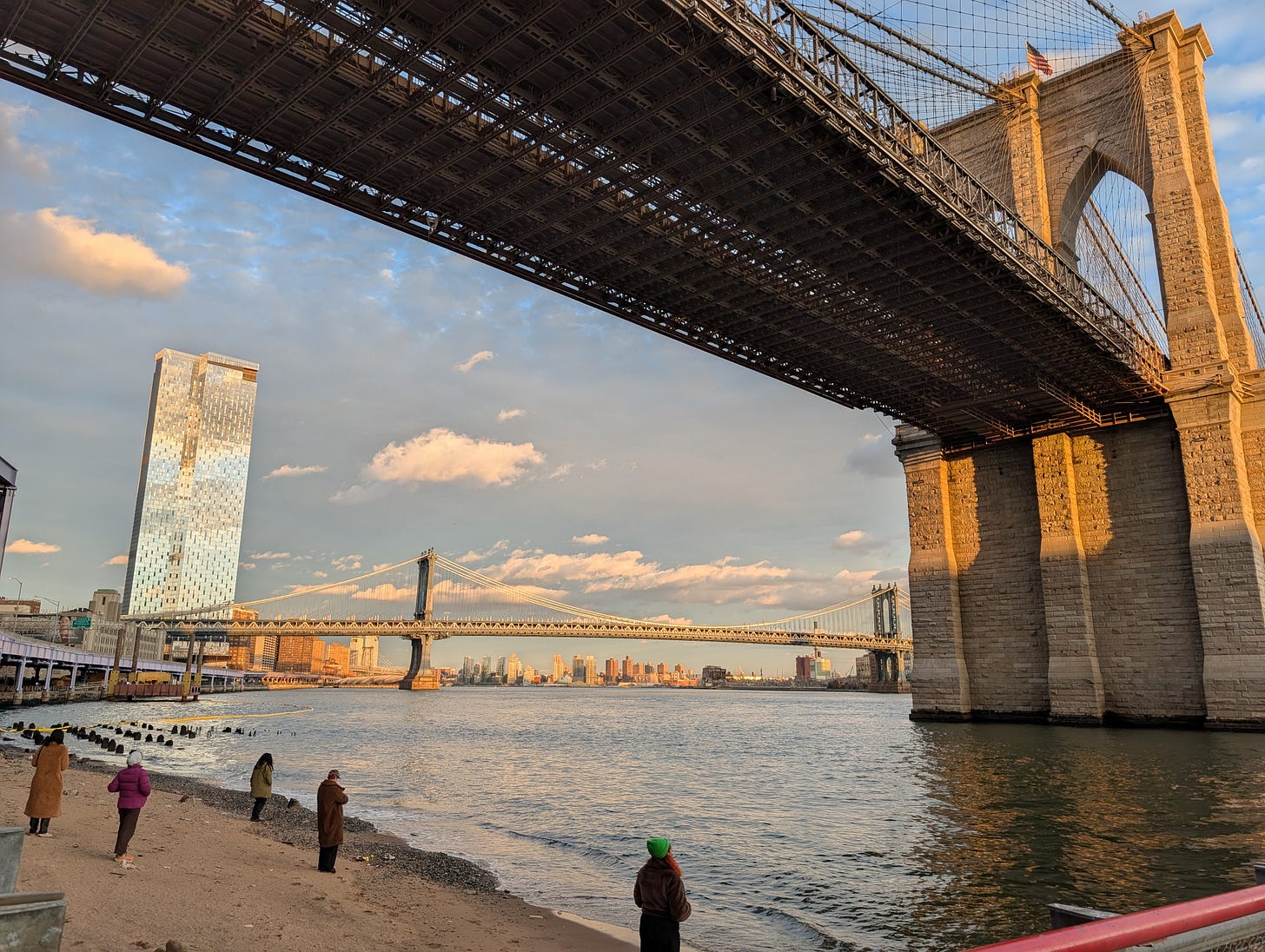
After sitting with this dense history, confronting our cultural amnesia, Ace gave us a chance to tend to fire, to nurture the flames. They passed around American bills, not real ones, but what is known as ancestor, spirit, ghost money or joss paper. A fellow Palestinian in the group and I discussed how confronting it was to deal with dollars everyday, knowing our participation in the economy and the tax system pays for the firearms used to wipe out over 900 families in Gaza. I’m still reckoning with having lost over 30 of my own family members this year (without including more distant relatives my father and I have no contact with).
How do we reckon with the multiple genocides this nation has been a part of? Next year under our future president we will have to put out many fires, literal and metaphorical. For those of us in diaspora and for those who didn’t willfully choose to migrate here, how do we rebuild our connections to our homelands while simultaneously honoring the piece of earth we now call home.
How are you spending today and this season of harvest, decay, and compost? Are you grieving the idea you had of your family, home, country? Have the burns from the past cleared space for new growth?
Are you gathered in a warm house, savoring the comforting food cooked by the fire in a labor of love, grateful for the hearth keepers & fire tenders amongst your kin?
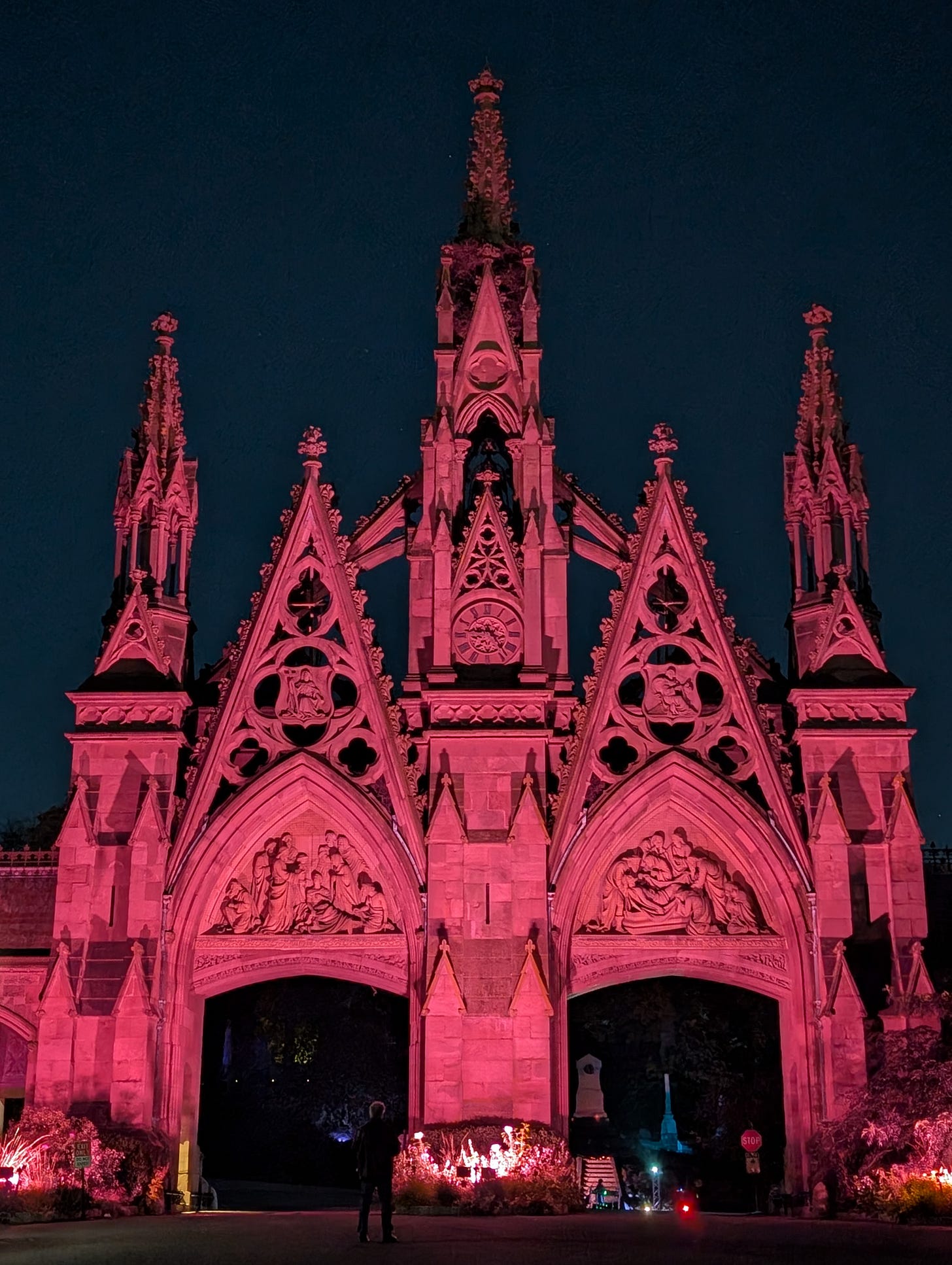
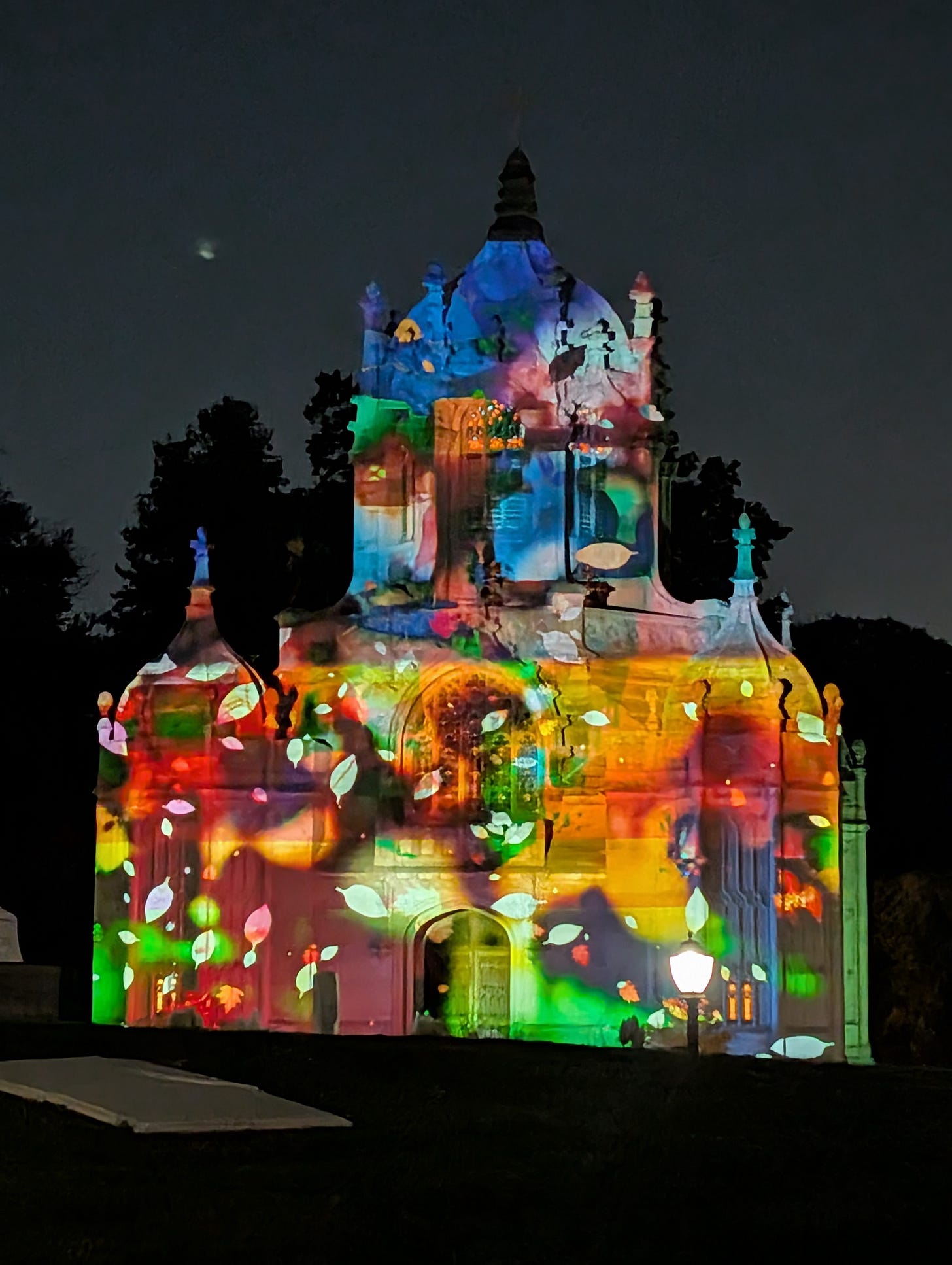
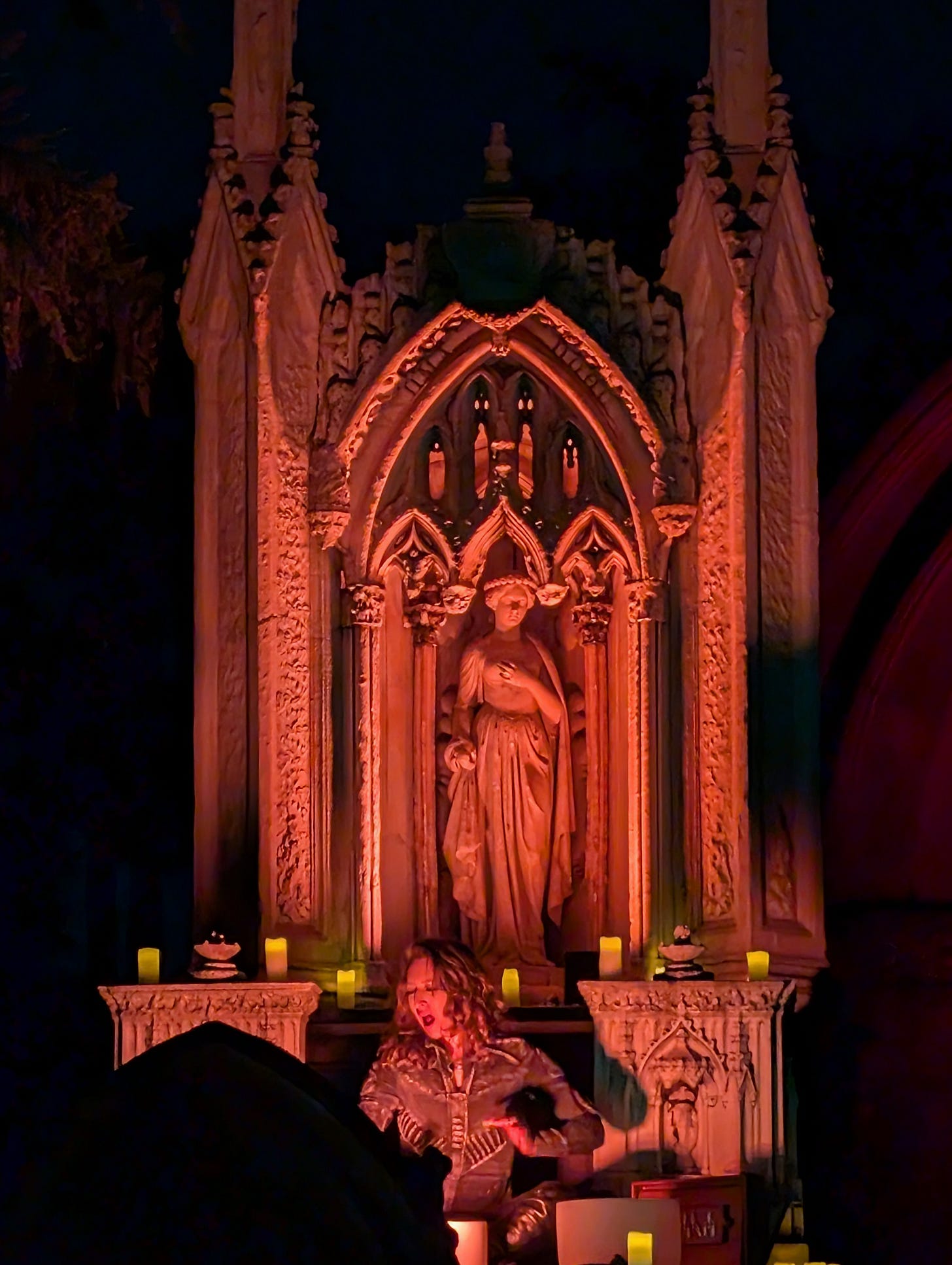
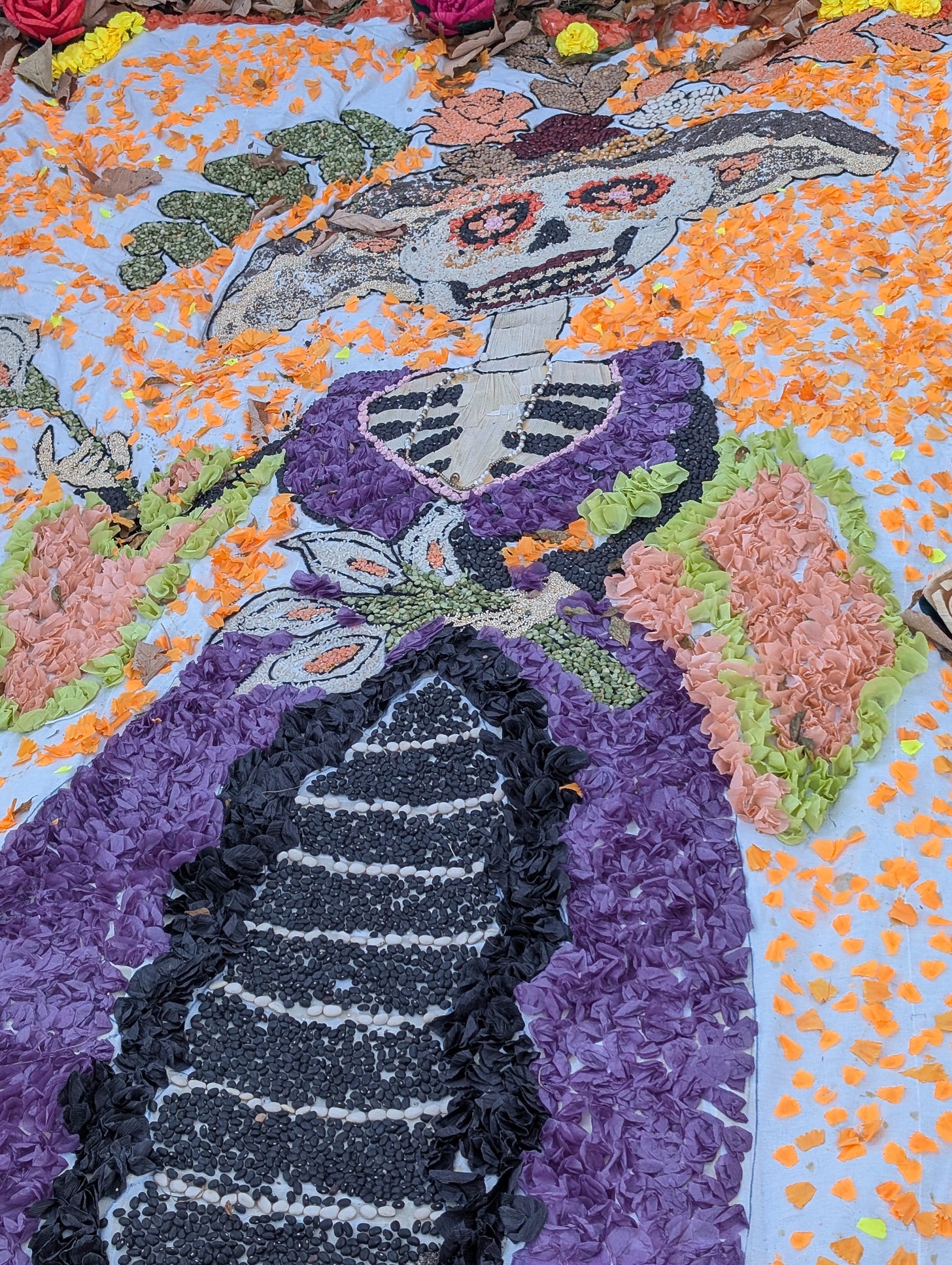
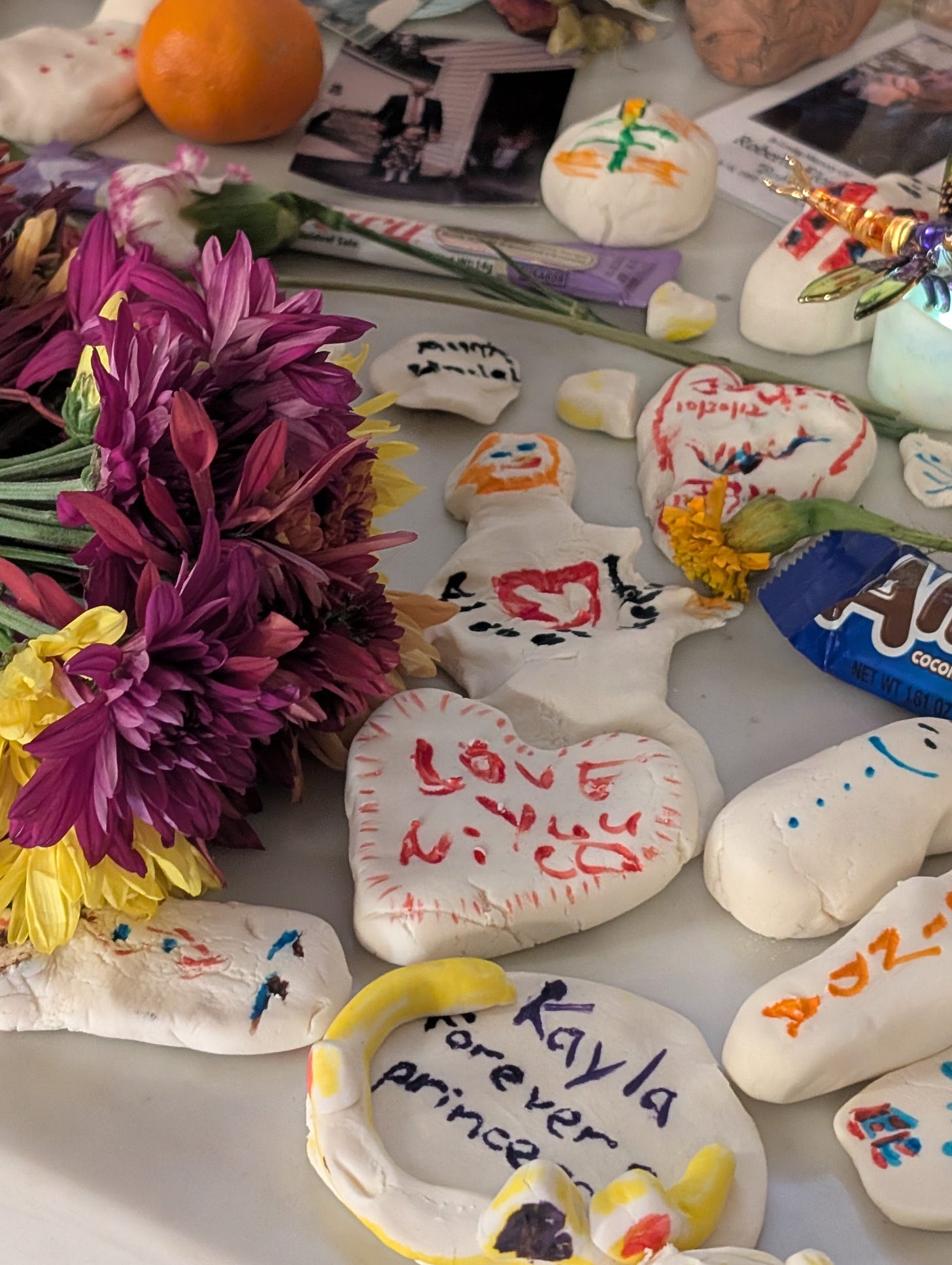
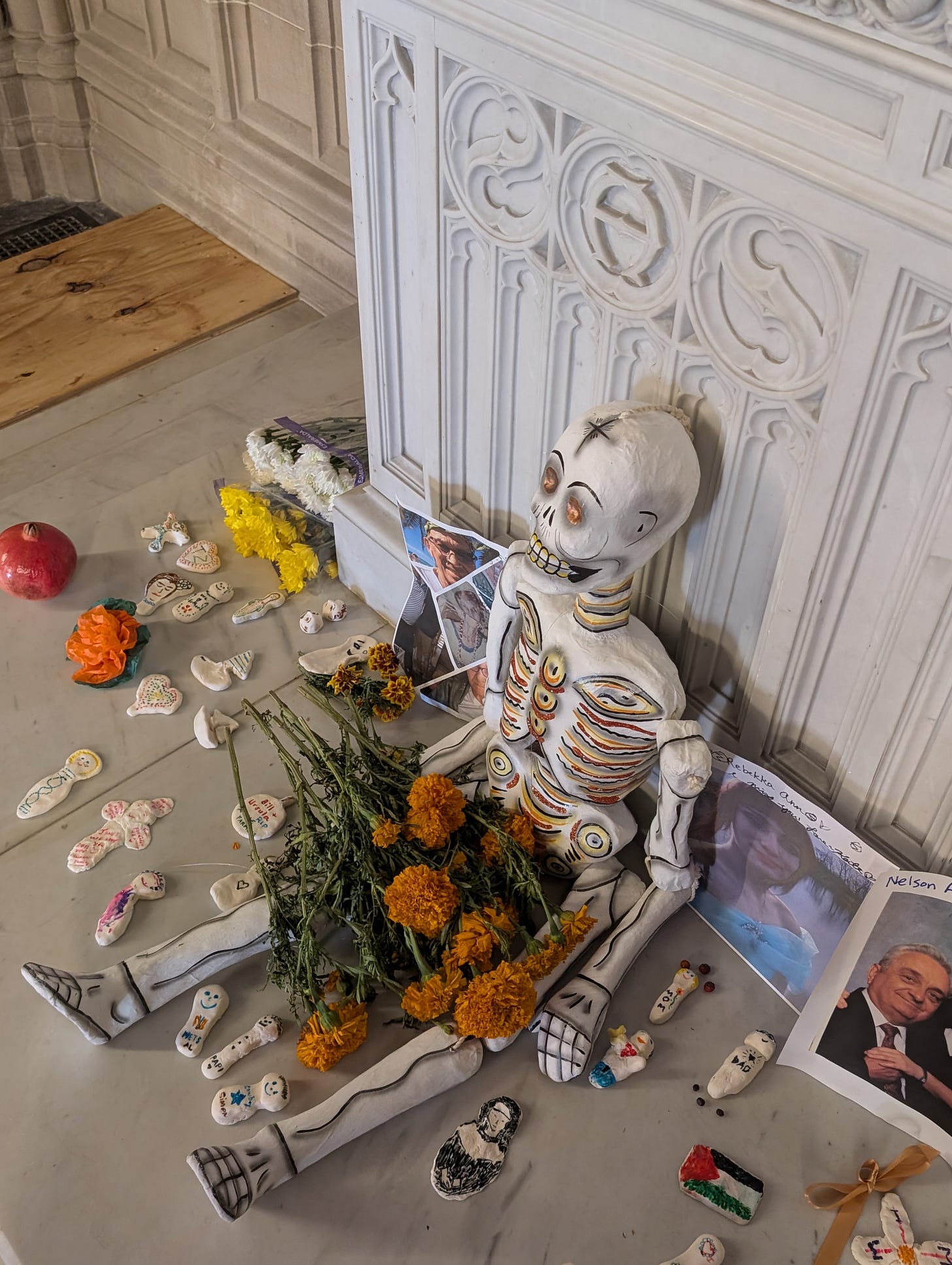
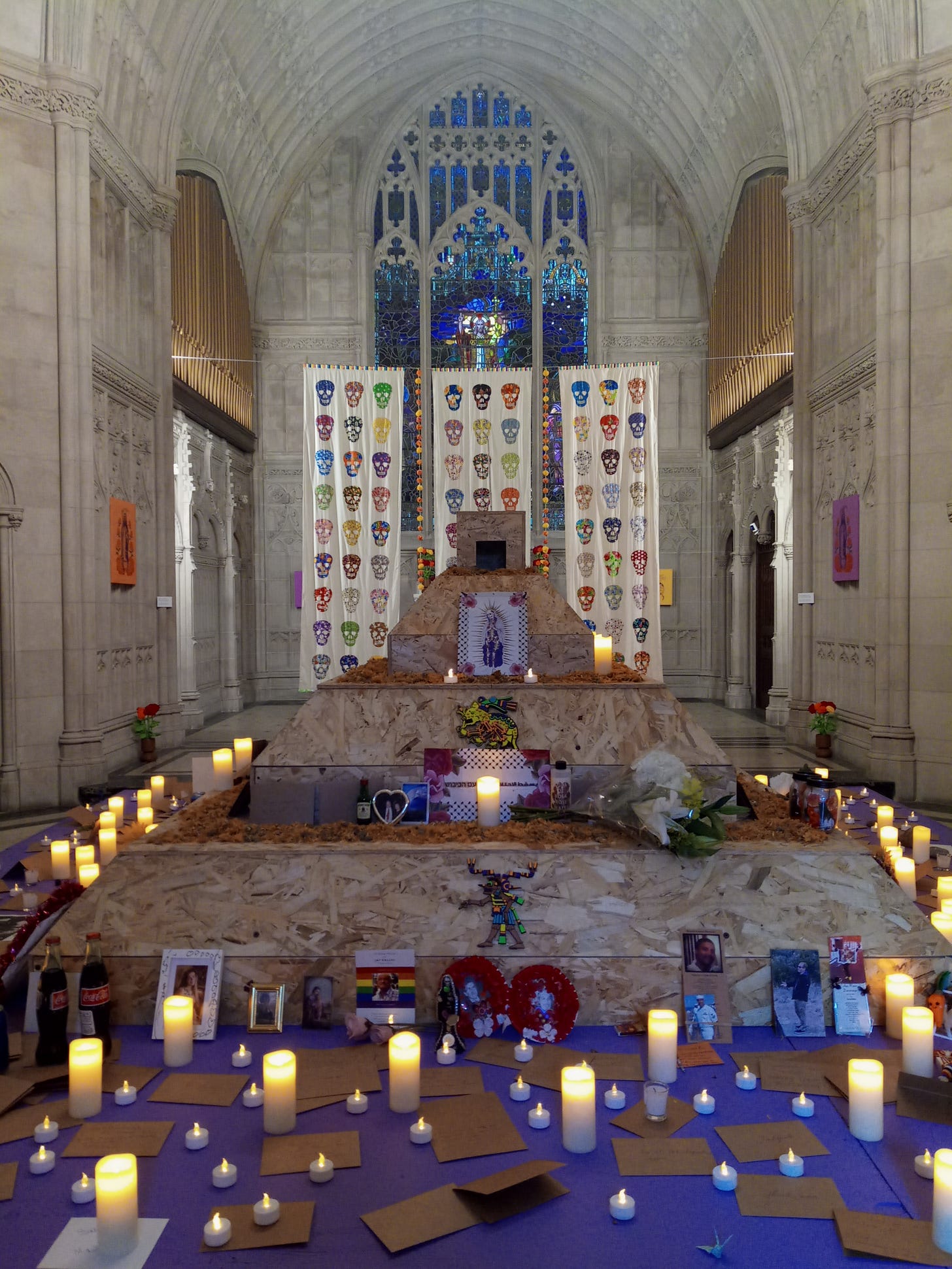

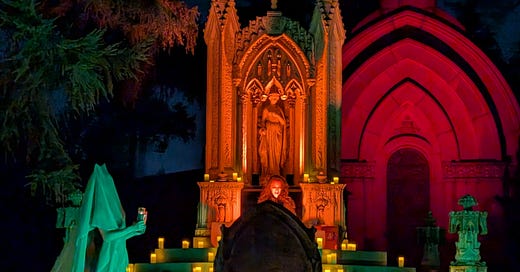


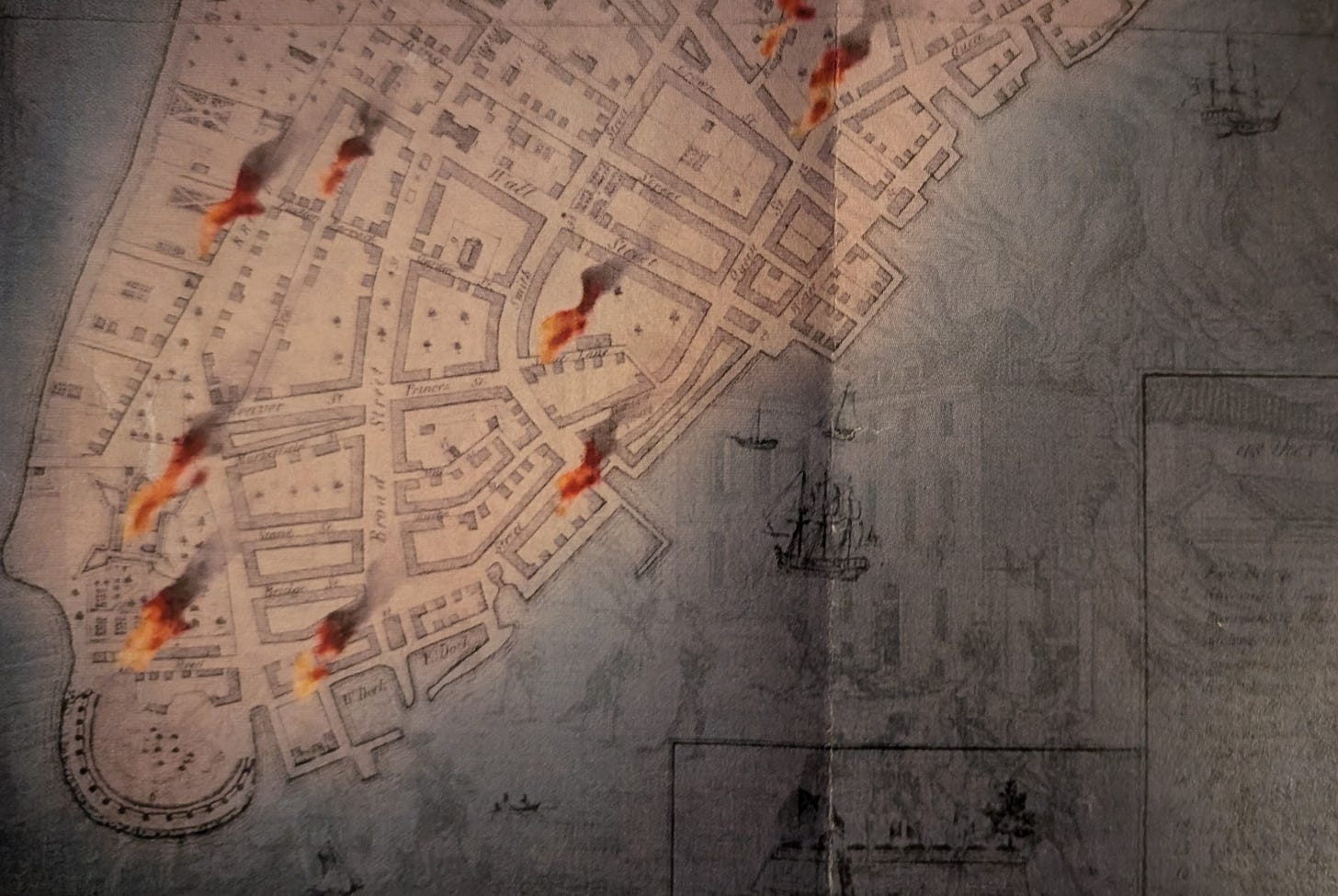
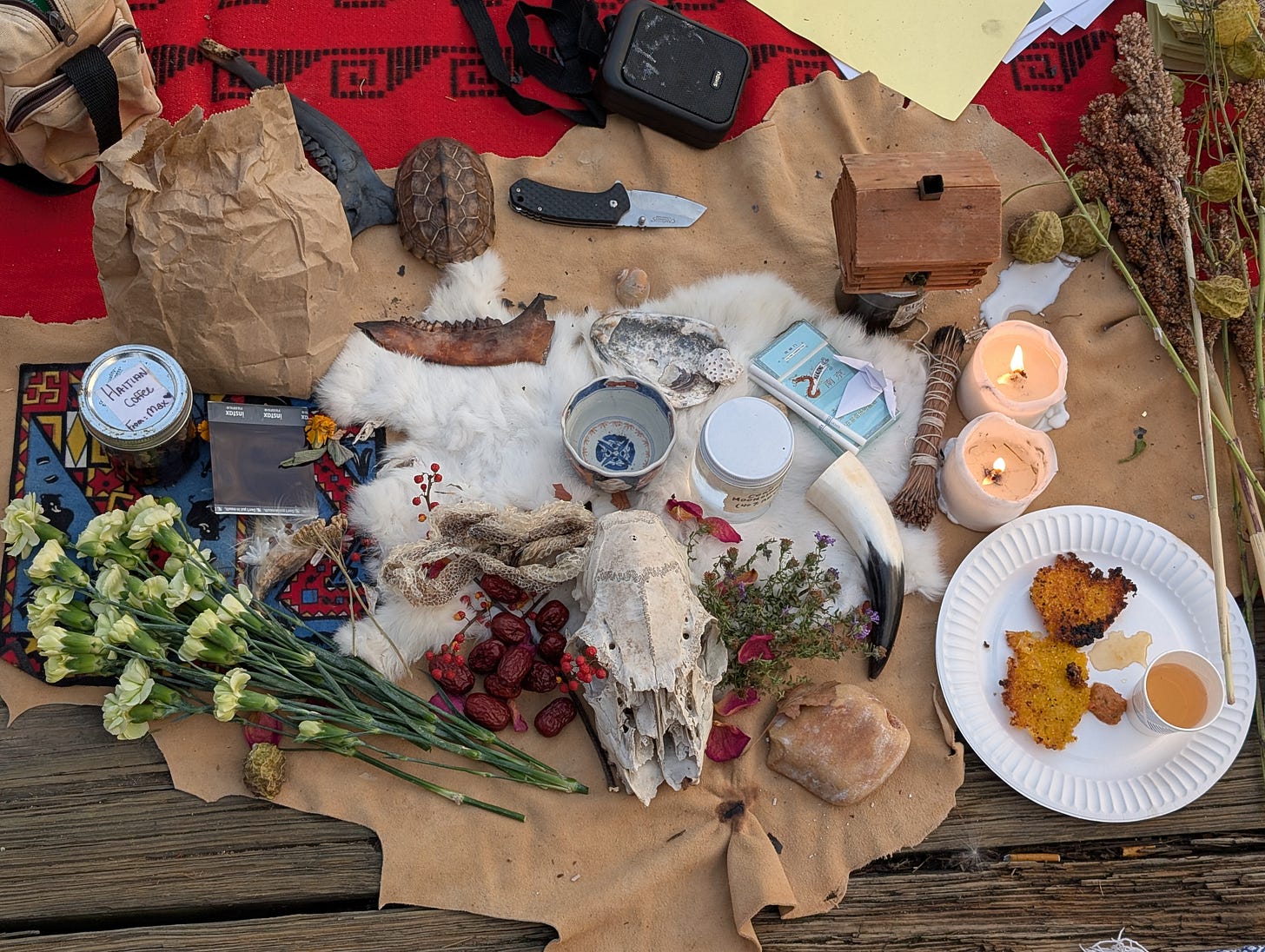

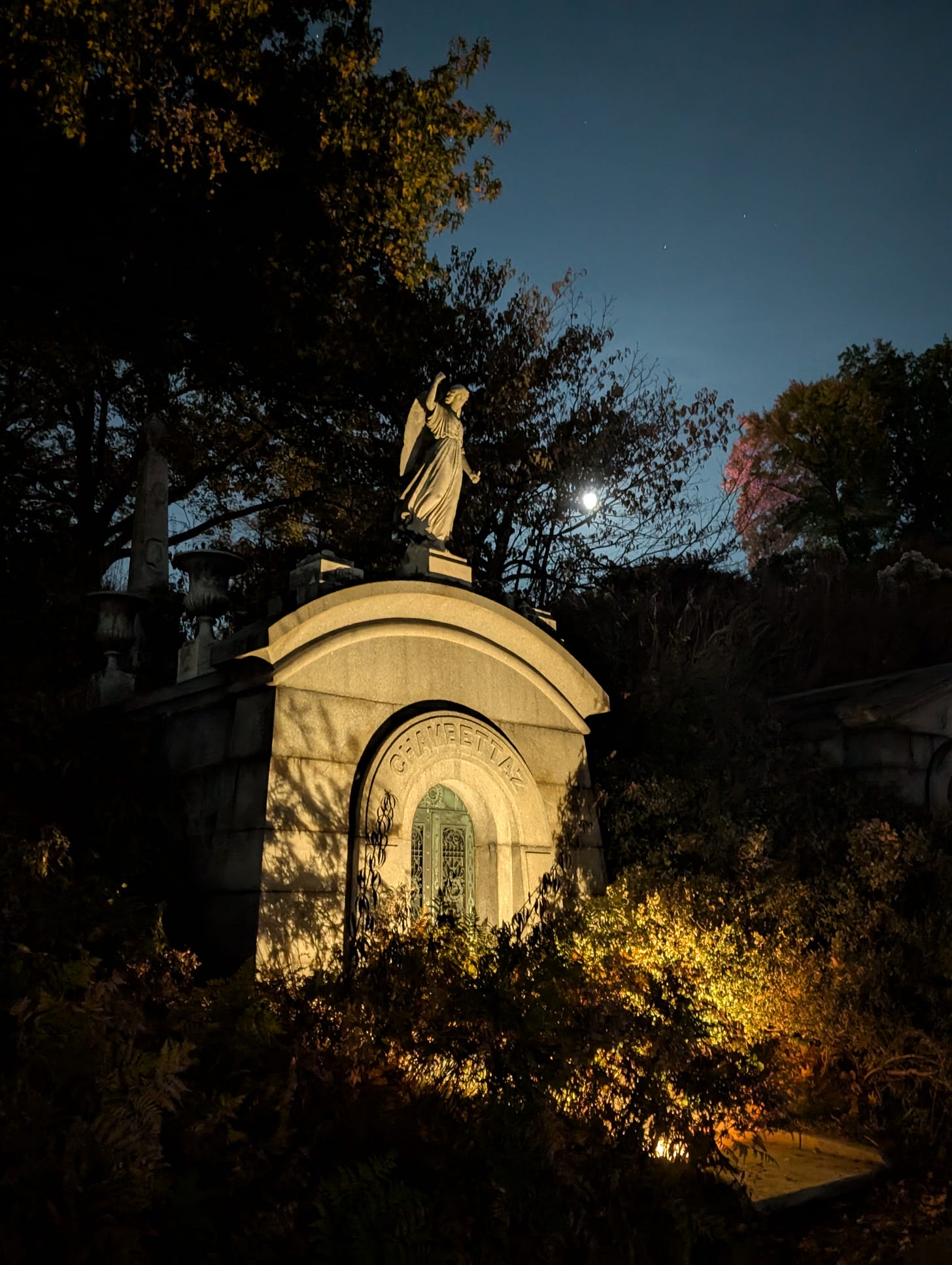
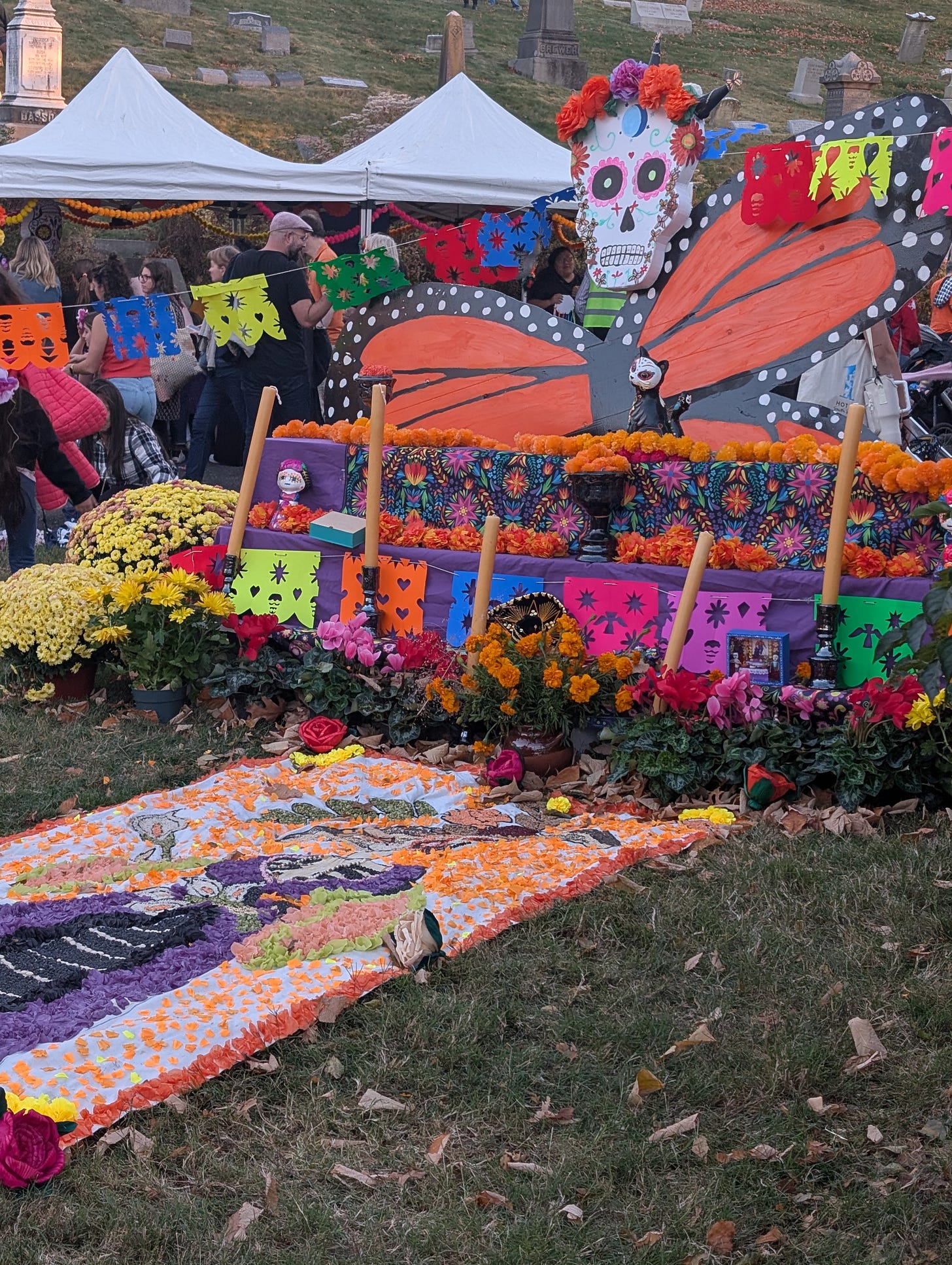
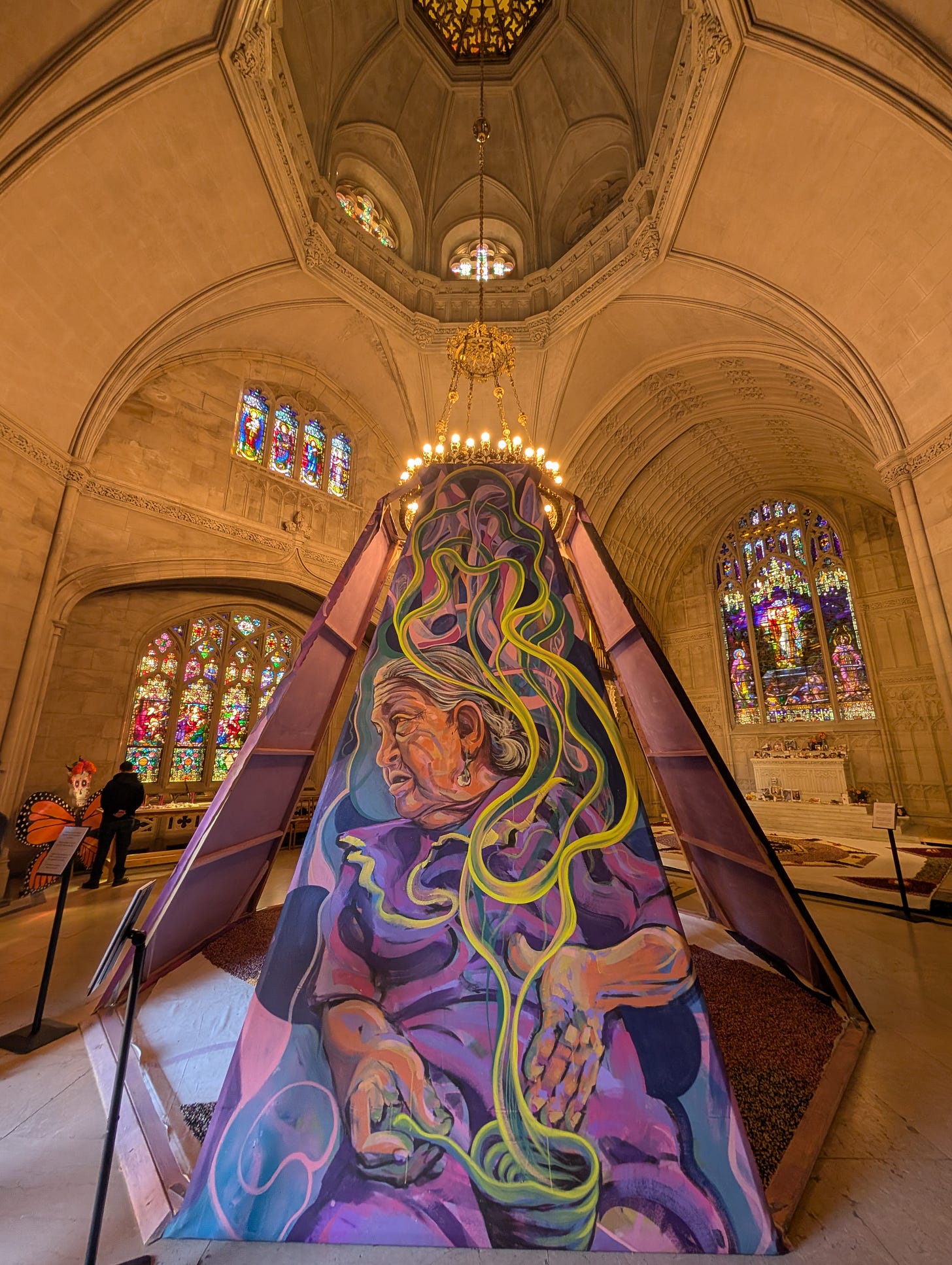
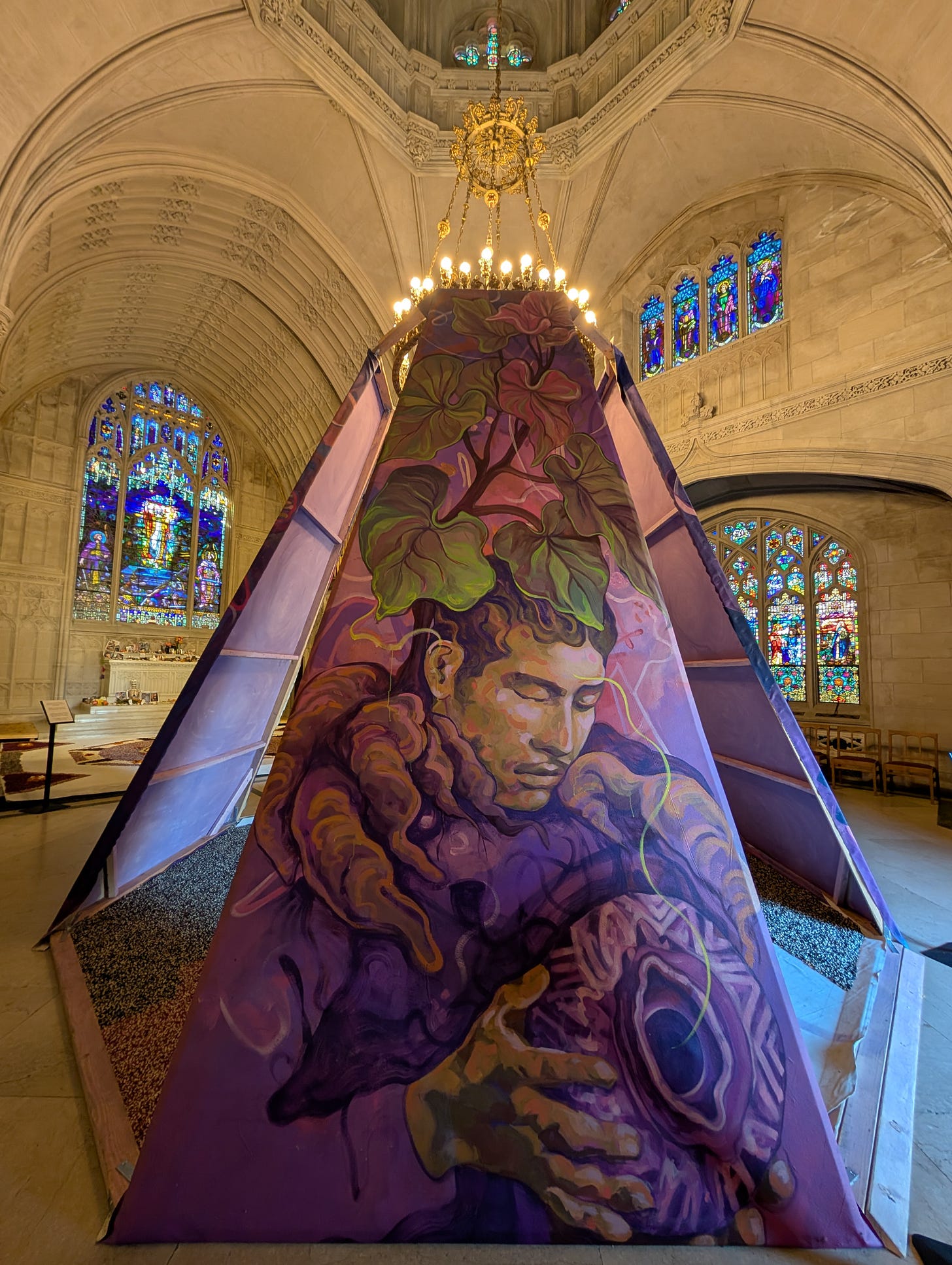
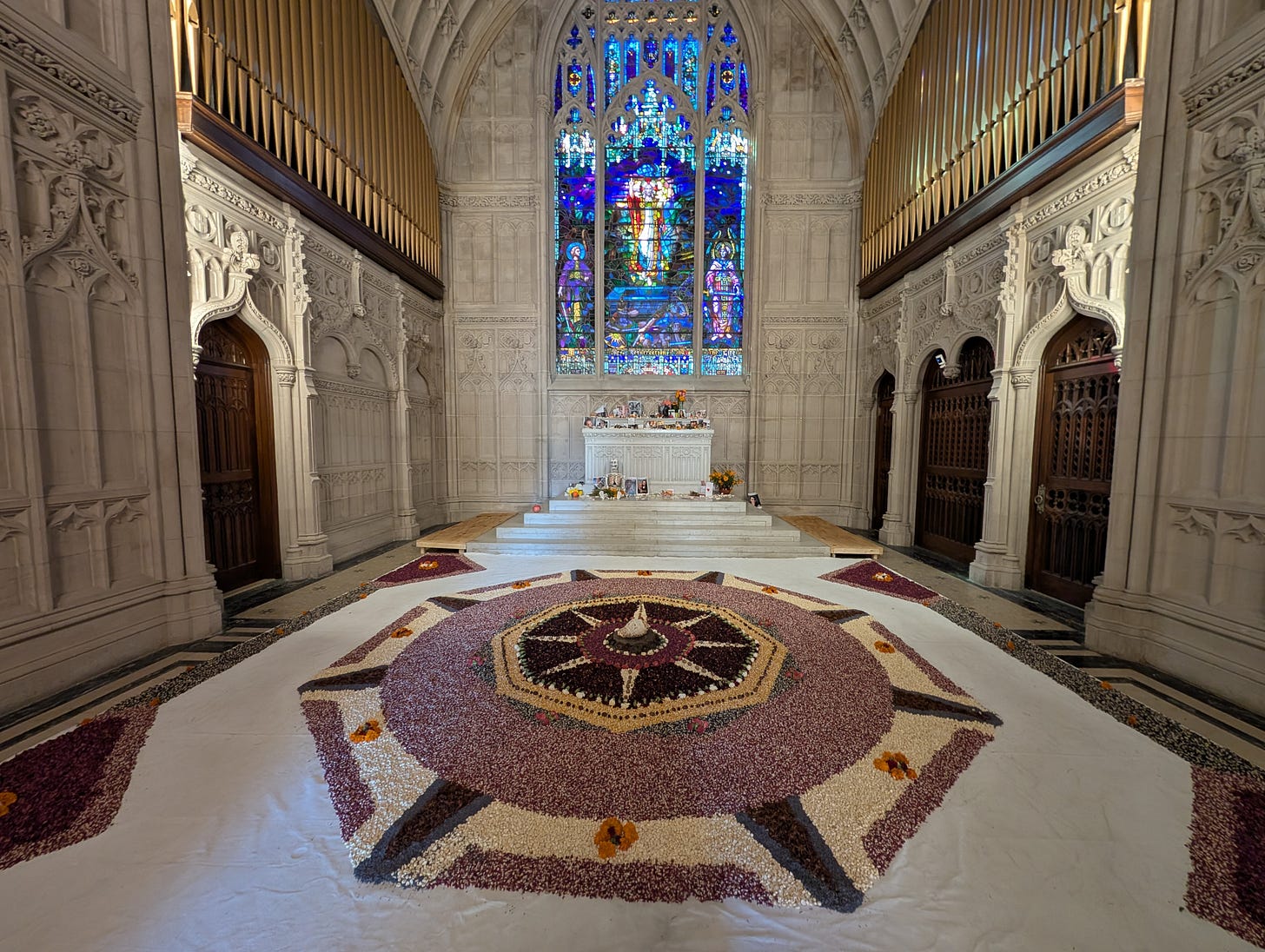
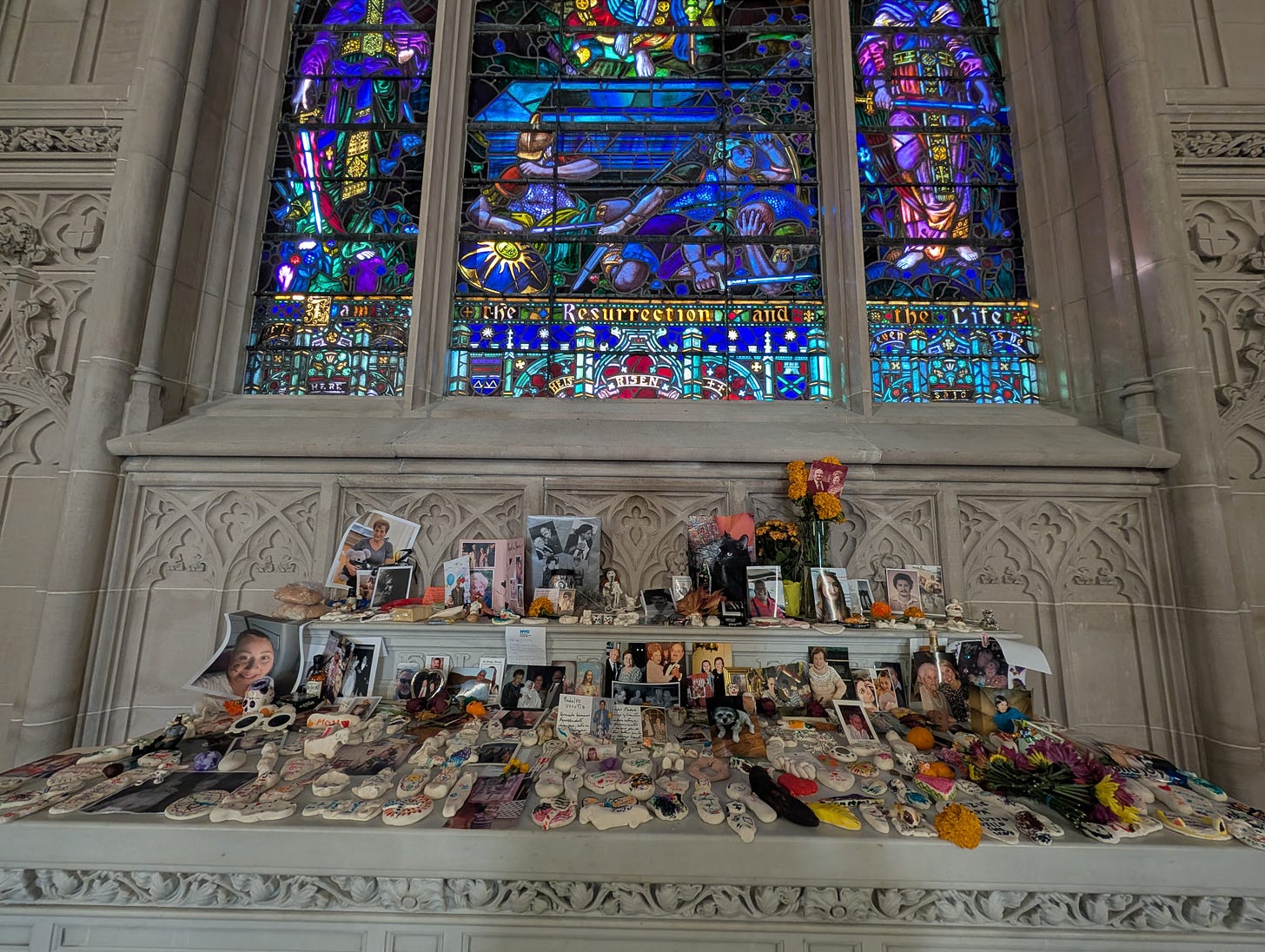
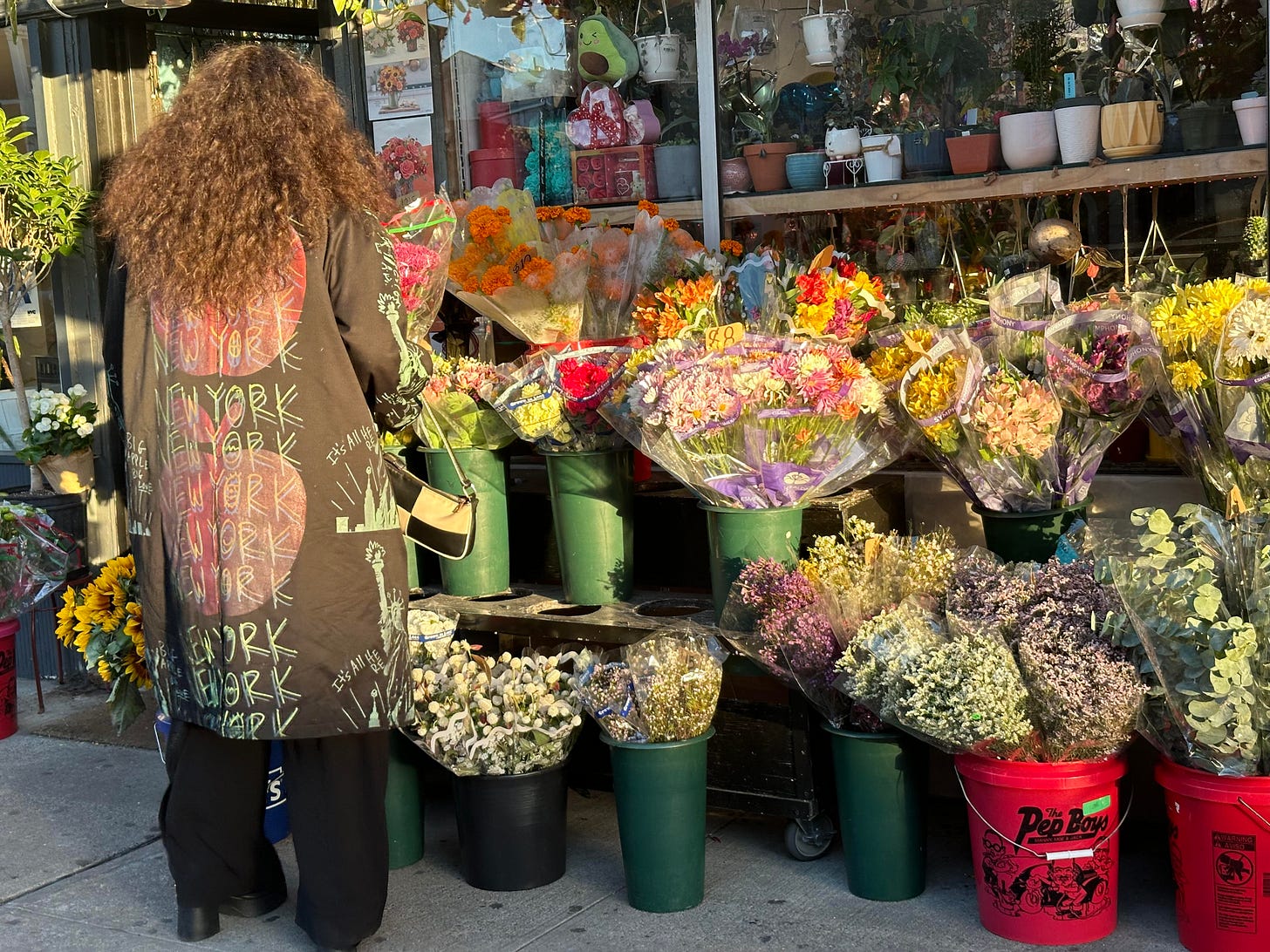
Your entire Substack is an altar. Always teaching me something amazing.